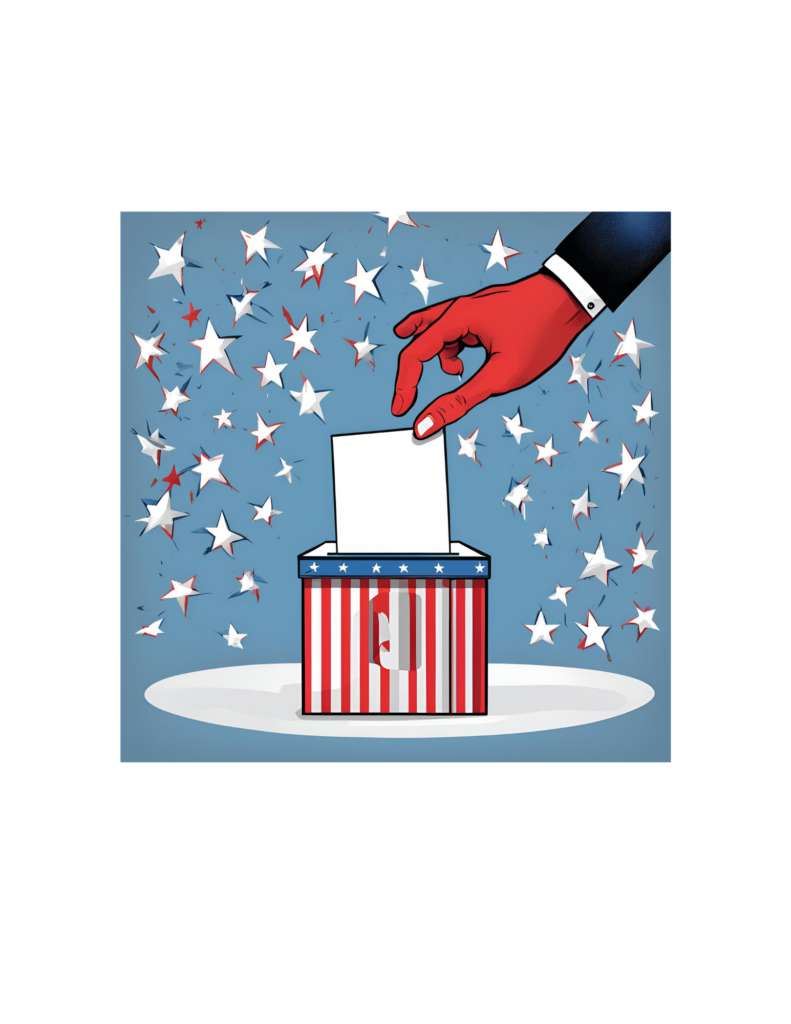
Do Elections Affect the Housing Market?
Elections are high-stakes events that shape policies, influence economic dynamics, and can impact markets across the board. One question many prospective homeowners, sellers, and real estate investors ask is: Do elections affect the housing market? The answer is complex, involving economic policies, public sentiment, and global market influences.
For anyone wondering how election cycles may sway housing prices, mortgage rates, or real estate investments, experts weigh in on how significant election periods can be for the housing market. With varying perspectives on how direct these effects are, understanding these dynamics can better prepare individuals to make informed decisions during election years.
How Do Elections Affect the Housing Market?
The housing market is sensitive to numerous factors, from economic conditions and interest rates to consumer confidence and employment trends. During election cycles, uncertainty around potential policy changes can lead to shifts in the housing market as buyers, sellers, and investors try to predict and adapt to new or anticipated shifts.
The Impact of Political Uncertainty on Real Estate
Political uncertainty is one of the most significant ways elections affect the housing market. Many buyers and sellers hesitate to make substantial financial decisions during uncertain times. According to a study from the Journal of Housing Economics, periods surrounding national elections typically see a minor decrease in real estate transactions as people hold back on significant investments until they gain clarity about future policy changes. This tendency is especially prevalent during presidential elections, as the outcome often signals a potential shift in economic and housing policies that can impact affordability and mortgage rates.
Economic Policies and Housing Affordability
Economic policies a newly elected administration introduces can have direct and lasting effects on the housing market. Candidates typically outline housing policy, taxation, and monetary reform plans that may influence housing affordability, tax deductions for homeowners, and capital gains taxes, which directly affect home sales. Experts agree that policy shifts related to tax benefits and housing subsidies can significantly impact home affordability and the supply-demand balance in the housing market.
For example, when administrations prioritize affordable housing programs, such as tax credits for first-time buyers or subsidized housing programs, homeownership becomes more accessible. Conversely, policy changes reducing these benefits may lead to a temporary slump in housing demand.
What Experts Are Saying About How Elections Affect the Housing Market
Do elections affect the housing market? Real estate experts offer insights on this question, explaining that the link between elections and the housing market lies in the chain reaction elections can trigger in the economy.
Expert Insight: Economic Cycles and Real Estate Stability
According to Lawrence Yun, Chief Economist at the National Association of Realtors (NAR), “Election cycles typically bring more uncertainty than concrete market shifts.” Yun states that while the housing market can experience temporary hesitation during election years, overall demand for housing remains relatively stable due to consistent demographic needs and limited inventory.
Meanwhile, Zillow economists report that housing market trends are not highly correlated with election results but note that consumer sentiment regarding future economic stability can slightly impact buyer behavior. Generally, buyers and sellers hold off on decisions until they understand future policies more clearly. However, experts like Yun suggest that these hesitations are typically short-lived, with activity picking up once policies are clarified post-election.
Read more on how the elections affect the housing market on NAR.
The Role of Federal Reserve Policy and Mortgage Rates
An essential component influencing the housing market during election periods is the Federal Reserve’s stance on monetary policy. The Fed’s policies directly impact interest rates and mortgage rates. During election years, the Federal Reserve may hold back on significant interest rate changes to avoid swaying economic sentiment around elections. Many experts agree that maintaining stable interest rates during elections can help alleviate some volatility in the housing market.
Interest rate stability is crucial for homebuyers relying on mortgages. Minor increases in interest rates can make housing less affordable as mortgage payments increase. Conversely, stability or reductions in mortgage rates can spur home buying. Experts advise monitoring the Federal Reserve’s actions during election cycles, as these decisions often signal how accessible housing might be in the immediate future.
Check out the Federal Reserve EXPLAINED for more information on the monetary policy.
Elections, Housing Supply, and Market Sentiment
Do elections affect the housing market? The answer partially lies in how market sentiment changes as people try to anticipate and react to the political landscape.
Consumer Confidence and Housing Demand
Consumer confidence is a primary driver in the housing market. During election years, people often feel uncertain about job stability, tax policies, and the broader economy. This sentiment can dampen housing demand slightly as people postpone decisions to buy or sell properties. However, studies have shown that this effect is usually temporary, with many people making buying or selling decisions within a few months after an election as policies become more apparent.
Housing Supply Constraints and Policy Impacts
During election cycles, the issue of housing supply and demand comes to the forefront, especially when discussions involve urban development and zoning policies. Policies that aim to expand housing supply by loosening zoning restrictions, increasing housing subsidies, or encouraging new development projects can address the shortage of affordable housing in densely populated areas. Many candidates introduce proposals to improve the housing supply, a factor that can affect market trends once implemented.
How Recent Election Cycles Have Affected the Housing Market
Recent elections have provided insights into how political shifts affect the housing market, although impacts can differ between local and national elections.
Case Study: The 2020 Election and Its Effects on Real Estate
The 2020 U.S. presidential election coincided with the COVID-19 pandemic, a period marked by low interest rates and an increased demand for housing due to shifts in remote work trends. While the election created temporary market hesitation, the pandemic’s effect on housing demand outweighed election-driven effects. Homebuyers prioritized low interest rates, which drove up housing prices significantly as people looked to buy homes outside urban centers.
This instance demonstrated that external economic factors can sometimes overshadow the election’s impact on the housing market. Still, the 2020 election highlighted how critical Federal Reserve policies are to market performance, as interest rates remained favorable despite the uncertainty of a primary election.
Timing the Housing Market Around Elections: Should You Buy or Sell?
For many individuals, whether to buy or sell property during an election cycle is critical. While elections affect the housing market to some degree, experts generally advise against timing the housing market around elections. Instead, they suggest that personal financial readiness, local market conditions, and long-term investment goals should drive these decisions.
Real estate is a long-term investment; predicting short-term election-driven fluctuations can be complex. According to Redfin’s chief economist, Daryl Fairweather, it’s unwise for buyers or sellers to delay transactions solely due to election uncertainty, as post-election market responses are often temporary and challenging to time accurately.
Strategies for Homebuyers and Investors During Election Years
Homebuyers and investors may benefit from adopting specific strategies to navigate housing market fluctuations during election years.
Focus on Mortgage Rates and Financing
Mortgage rates significantly impact housing affordability. Monitoring interest rates before and after the election is crucial, as the Federal Reserve’s stance can influence borrowing costs. Experts suggest securing favorable mortgage rates in times of low interest to protect against potential future increases.
Read more about interest rates on our website here!
Understand Local and National Policy Trends
Since local elections can directly impact property taxes, zoning laws, and community development plans, buyers and investors must stay informed about proposed policies that may affect specific markets.
FAQ
Do elections affect mortgage rates?
Yes, election cycles can indirectly influence mortgage rates. The Federal Reserve often avoids significant policy changes during election years, which can temporarily stabilize rates.
How does consumer confidence affect the housing market?
Consumer confidence plays a significant role in housing demand. During election years, uncertainty can dampen consumer confidence, causing some buyers and sellers to delay decisions.
Do housing prices drop during elections?
Housing prices may experience minor dips in sales volume during elections due to buyer hesitation, but significant price drops are rare and often depend on broader economic conditions.
Is it wise to buy a home during an election year?
Buying a home during an election year depends on personal circumstances rather than election timing. Experts advise considering long-term investment goals over short-term market timing.
What effect did the 2020 election have on housing?
The 2020 election coincided with the COVID-19 pandemic, increasing housing demand and prices due to low mortgage rates rather than political factors.
Should investors be cautious about real estate during election cycles?
Investors should stay informed but not avoid real estate based solely on election timing, as long-term returns are typically stable across election cycles.
Conclusion
While elections affect the housing market through consumer confidence and policy shifts, the overall impact is often temporary. For most buyers, sellers, and investors, focusing on broader market trends, interest rates, and personal goals outweighs the influence of election cycles. Individuals can make more informed real estate decisions and manage risks by understanding how elections can indirectly affect the housing market.






0 Comments